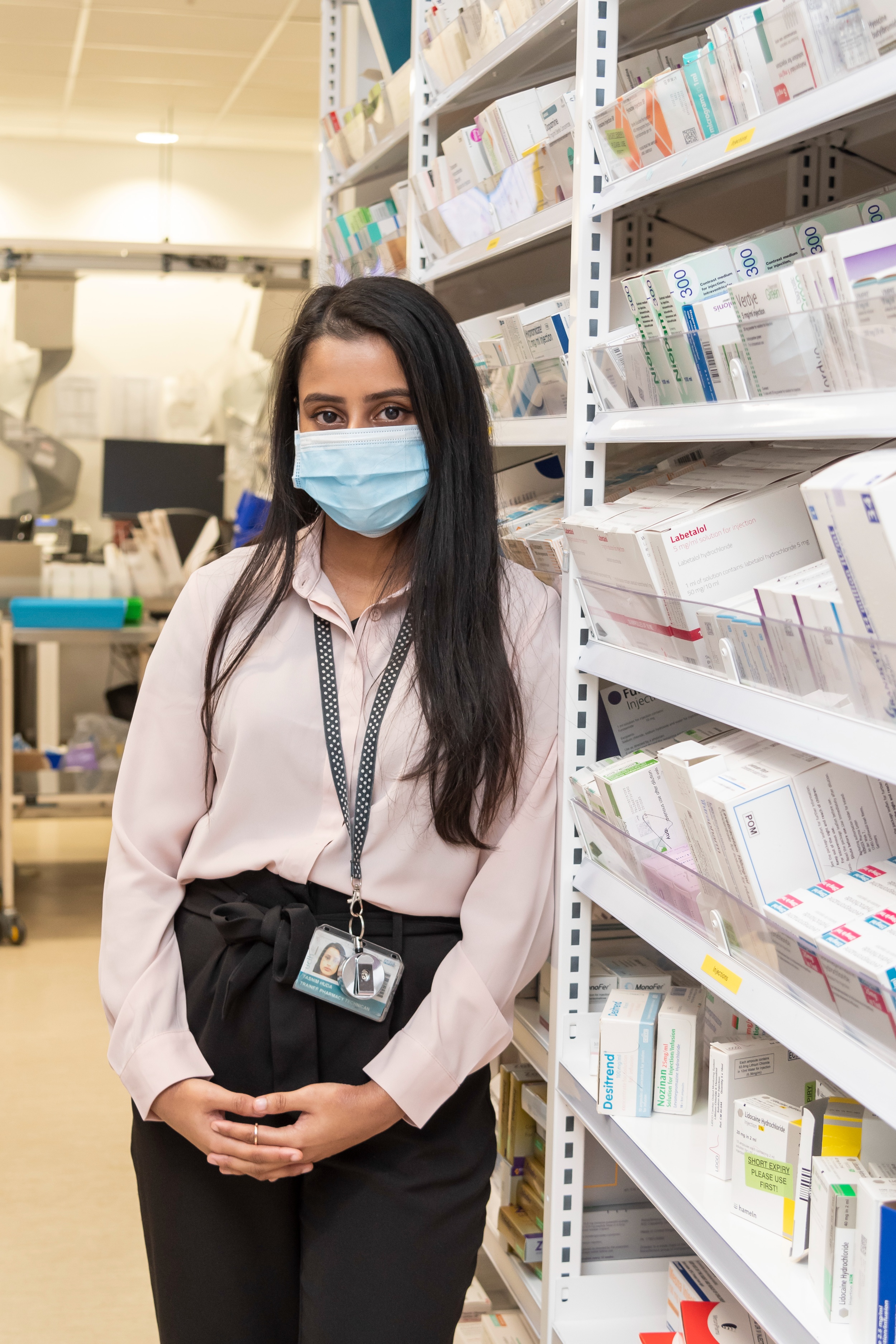Tasnim tells us about her experience training with the Pharmacy team at UCLH and how their support has encouraged her to pursue this career.
What is a pharmacy technician?
Pharmacy technicians are responsible for the day-to-day management of medicines, such as checking and ordering stock, as well as preparing and supplying medicines. Pharmacy technicians can also go on to work in patient-facing roles on the ward, where they directly manage a patient’s medication, in clinical trials or in non-clinical roles, such as in procurement.
I’m currently on a two-year apprenticeship to qualify as a pharmacy technician. The training is broad and involves a mixture of shadowing, virtual classroom learning and rotations at UCLH’s different hospitals.
What does a typical day involve?
At the moment, I’m based in the inpatient dispensary, so in the morning I usually visit the wards to check their medicine stock levels and expiry dates.
This is to make sure they have the appropriate supply and order more, if needed. After this, we rotate across different duties – these could be making up and supplying medicines for inpatients, preparing ‘to take away’ (TTA) medicines for patients being discharged, or monitoring and recording the pharmacy stock.
Why did you choose this career?
I was a recent psychology graduate when the COVID-19 pandemic hit, and it made me realise I wanted to pursue a career in healthcare and do something where I could make a difference. One of my friends, who was already studying on the course, recommended it as a way of starting a career in pharmacy. That’s one of the things I love about the team here – there are people with lots of different backgrounds.
What is the best part of your job?
I love the support and encouragement of the team – they are so enthusiastic when it comes to helping and training me and it’s been great for my development. I appreciate their support and it feels nice knowing that they want to help me succeed.
What skills do you need?
Good communication skills are useful – you must be able to speak to a whole range of people, from nurses and doctors to patients. Time management and attention to detail are also essential, as you must be able to prioritise competing duties while remaining accurate in your work.


